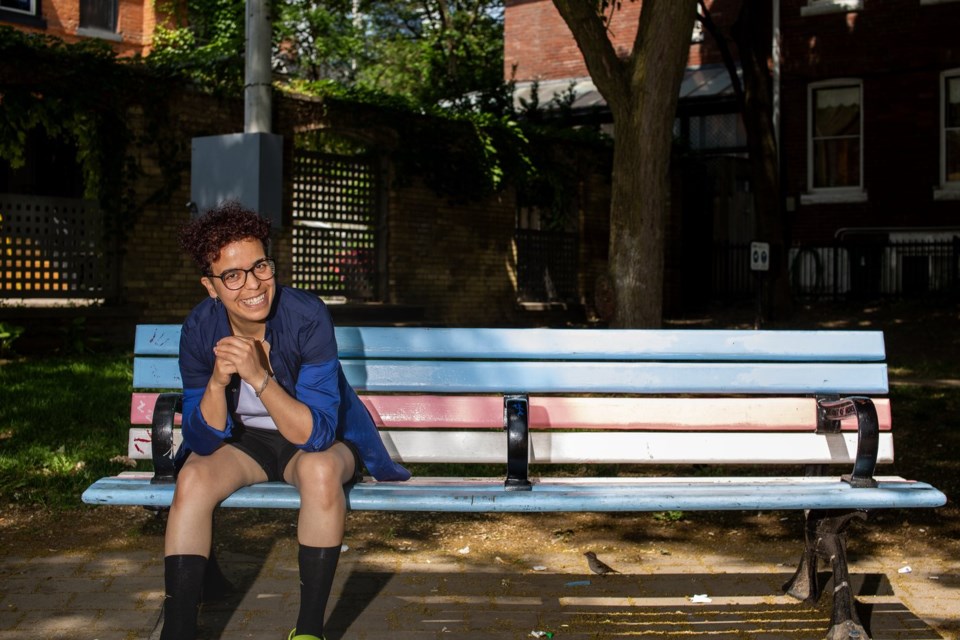OTTAWA — An organization that helps LGBTQ+ people file refugee claims says it has seen a spike in pleas for assistance from around the world since 2020.
Devon Matthews, program head with Rainbow Railroad, said the explosion in the number of requests for help reflects a trend of nations backsliding on LGBTQ rights — or even embracing a policy of persecution.
"This isn't just the United States that we're seeing this in," she said. "More broadly worldwide, we are seeing some particularly terrifying xenophobia, anti-refugee sentiment and queer phobia in many countries around the world, including in Europe and across different regions in which we work on the ground."
Republican state and federal officials in the U.S. have been working for years to limit the rights of LGBTQ+ Americans and have imposed rules on which sports transgender students can play and which bathrooms they can use, among other policies.
The Rainbow Railroad says it's now working with Ottawa to divert from the U.S. to Canada a handful of refugee claims filed by LGBTQ+ claimants.
Matthews said her organization was fielding 27 applications representing 36 people who were bound for the U.S. at the start of the year. Some of the applicants filed as couples.
She said 28 of those applicants changed their minds about moving to the United States after President Donald Trump returned to the White House.
"So we've had to pivot our plans for those 28 individuals to come to Canada to the best of our abilities," she said.
"Obviously, it's a very complex process to switch all of the different logistics and paperwork, and people are in extremely dire situations, but we've been doing what we can."
Matthews said that this kind of switch isn't allowed normally but Ottawa is making an exception.
Matthews said these refugee claimants would not be covered by the Safe Third Country Agreement — which says an asylum seeker must stay in the first safe country they reach — because they have not entered the U.S. The claimants are currently living in Brazil, Columbia, Uganda and nine other African countries.
A spokeswoman from Immigration Minister Lena Diab's office said in an emailed reply that the office can't comment on specific cases due to privacy legislation.
She added that Canada has a "proud history" of resettling vulnerable people, including LGBTQ+ refugees, and the government works with groups like Rainbow Railroad to identify LGBTQ+ refugees and their families for resettlement.
Rahma Esslouani made it to Canada with Rainbow Railroad's help. Esslouani is originally from Morocco, where same-sex relationships are illegal.
"I faced violence, physically and psychologically, from my family, from society, discrimination, persecution. So I don't have rights to wear what I'm going to wear. I don't have rights to be myself, to be who I am. I have to follow the culture," Esslouani said.
"My family wanted to force me to get married, so this makes me feel like I can't accept a marriage to a man. So that is the main and biggest reason to escape through Turkey."
Esslouani said they faced continued persecution in Turkey, where non-binary status is not recognized under the law. While it's not illegal to be in a same-sex relationship or to be gender non-conforming in Turkey, so-called "offences against public morals" have been used to target LGBTQ+ people.
Esslouani said they were arrested in Turkey.
"I realized that it is dangerous to exist and to be myself as queer, non-binary person," they said.
After that arrest, Esslouani contacted Rainbow Railroad.
"I remember the first the email that I received said, 'We are with you. You are not alone,'" Esslouani said.
"I read it again and again and again because of like, happiness with this world that finally someone heard my story and gives me hope, that I have to resist and not give up."
Esslouani finally came to Canada in July 2024, just missing Pride Month in Toronto. They said it's "a dream come true" to live here after a lifetime of hiding.
"So finally, I'm going to be myself. I'm going to be out in public and can be myself and introduce my sexuality in public, and live, walk and talk freely and not be scared of the police or that people will judge me or to feel shame or afraid," Esslouani said.
"There is love between people here. Everyone supports each other. There is no judgment, no fear. So I feel that I am no longer just surviving, but I am alive."
Rainbow Railroad receives a yearly allotment of 250 spots in Government Assisted Refugee program to help people like Esslouani come to Canada.
This report by The Canadian Press was first published June 18, 2025.
David Baxter, The Canadian Press



